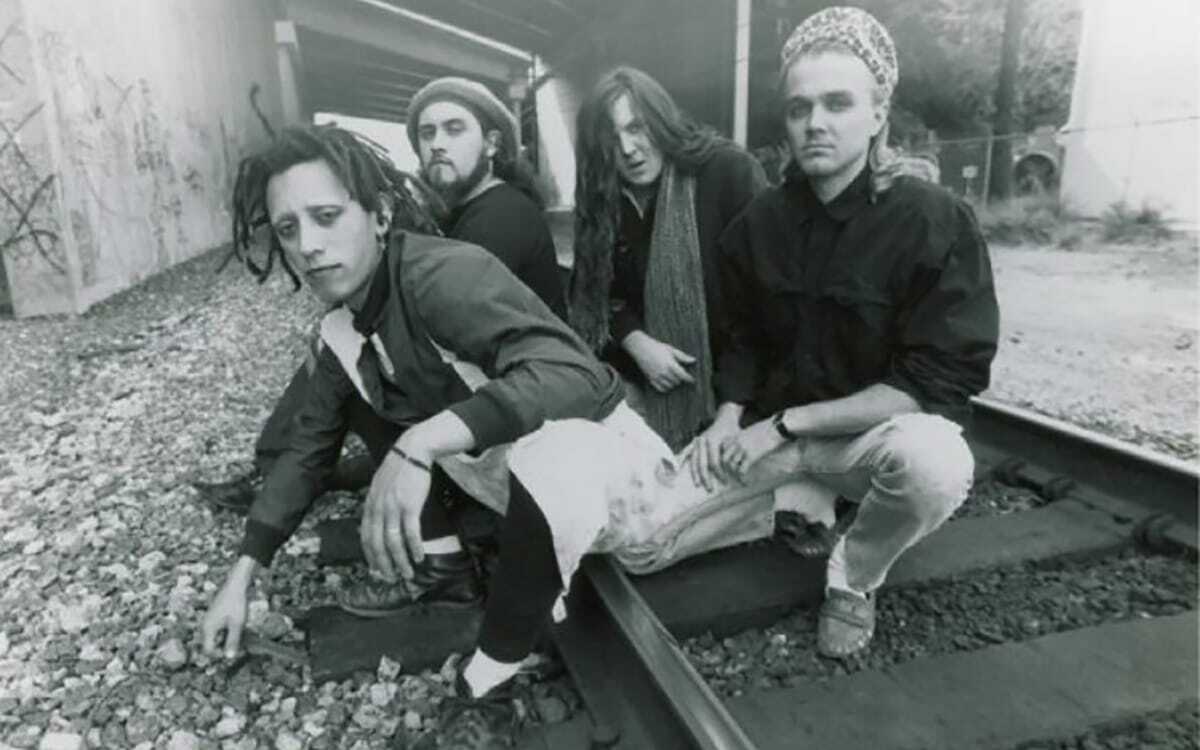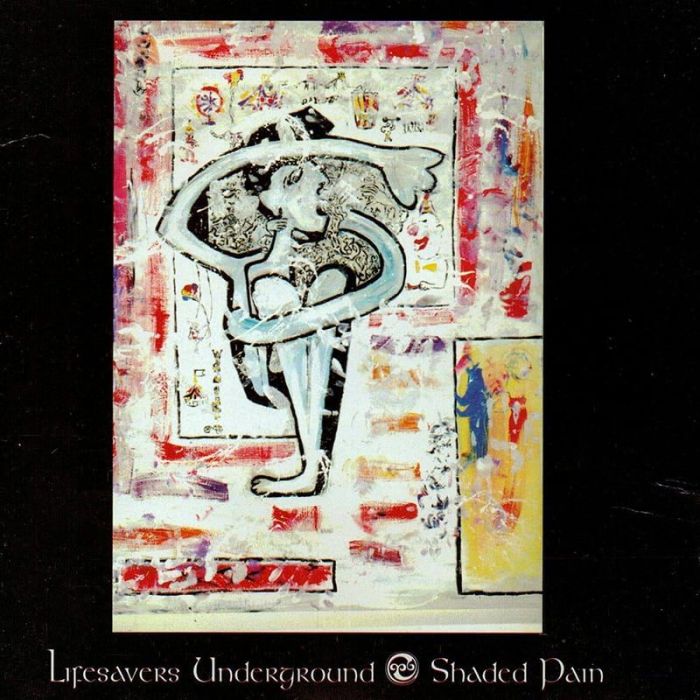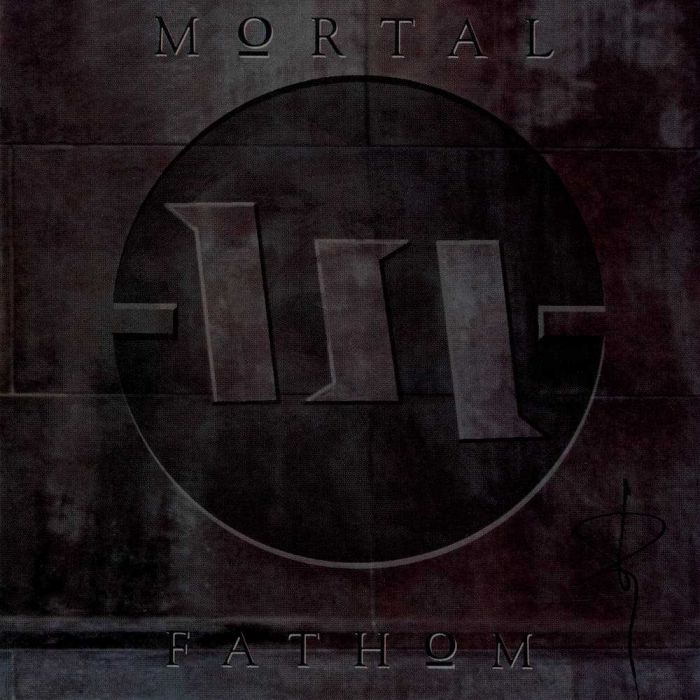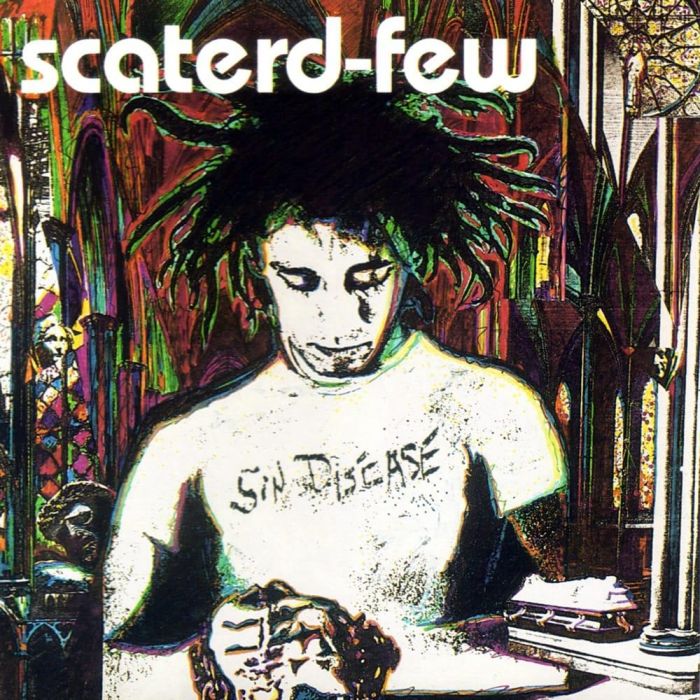Grace Notes: Lifesavers Underground, Mortal, Scaterd Few

Grace Notes is a weekly exploration by Jason Morehead of signs of common grace in the music world. We hope to alert you to wonderful music, some of which will be spiritual in nature but all of which will be unique and worthy of your attention. Each week we will share brief reviews of albums worthy of your attention and maybe a video or two.
If you haven’t already, read Chad Thomas Johnston’s excellent Image Journal article on the music of Michael Knott. I was quite the fan of Knott’s music, particularly his Lifesavers Underground project, and I’ve been revisiting those albums since reading Johnston’s article. I’ve also been inspired to revisit several other “alternative” Christian bands that I listened to in the early ’90s, when I discovered there was more to Christian music than Carmen, Amy Grant, Michael W. Smith, et al. I’ve already written about one such band — The Prayer Chain — but if you’ll indulge me, I’d like to take another stroll down Nostalgia Lane.
Lifesavers Underground

Michael Knott may be the most productive Christian musician you’ve never heard of. Over the course of nearly three decades, he’s released a slew of albums under his own name as well as a number of monikers. For my money, his most compelling stuff has been released as Lifesavers Underground (also known as L.S.U. and L.S. Underground). The first Lifesavers Underground album, Shaded Pain (1987), remains a touchstone in Christian music. Even now, with its goth-y Nick Cave/Bauhaus stylings, tortured vocals, and dark lyrics, Shaded Pain stands out in Christian circles. It set the template for subsequent albums, which found Knott tackling a number of controversial topics in a very blunt, forthright manner (see “G.G.G.” on This Is the Healing). My favorite L.S.U. album, though, is 1993’s Cash In Chaos — World Tour. Recorded after the financial collapse of his Blonde Vinyl label, the album is a feverish, dream-like tour through the seedy L.A. neighborhoods that Knott was living in at the time. Most of the Lifesavers Underground albums are now available for purchase via Bandcamp.
Mortal

Mortal was often described as an “industrial” band, part of the explosion of Christian industrial acts in the early ’90s (which included Circle of Dust, Under Midnight, and globalWAVEsystem, to name a few). However, the more I listen to the duo’s music, the more I’m convinced that “industrial” was never the right term for them. Sure, Mortal’s music had many industrial trappings, (e.g., distorted vocals, harsh programming and rhythms, oodles of sci-fi movie samples). But it was more melodic and contemplative, thanks to singer/guitarist Jyro Xhan’s fascination with the poetry of Pablo Neruda and Gerard Manley Hopkins. With their second album, 1993’s Fathom, they termed their music “hypersoul.” The industrial elements were still there, but also featured were soulful ballads (“Jil Sent Me”), hip-hop beats (“Bright Wings”), and more straightforward techno/electronica (“Godspeed”). Mortal released several more albums that moved even further away from industrial before dropping the moniker in 1996 and re-forming as Fold Zandura, which featured a shoegazer-oriented sound.
Scaterd Few

Even today, two decades after its initial release, Scaterd Few’s Sin Disease has lost none of its potency. When it was originally released in 1990, the album was pulled from Christian bookstores due to its blunt lyrics regarding drug abuse, gang violence, and life’s seedier aspects. The band’s music — a mixture of punk, funk, goth, reggae, and speed metal — probably raised a few eyebrows too, as did lead singer Rämald Domkus’s (aka Allan Aguirre) voice, which ranged from a David Bowie-esque croon to banshee-like wails. It all made for explosive combination, and I still get chills whenever I give Sin Disease a spin. Whether Domkus and Co. are calling out the flesh’s sinful nature (“Kill The Sarx,” “While Reprobate”), lamenting the loss of a friend to a gang shooting (“Lights Out”), or calling out false teachers (“Scapegoat”), they do so with a conviction and reckless abandon, all while screaming and laying down frantic riffs, that one doesn’t normally associate with Christian music. Would that more Christian artists were as reckless.
This entry was originally published on Christ and Pop Culture on .